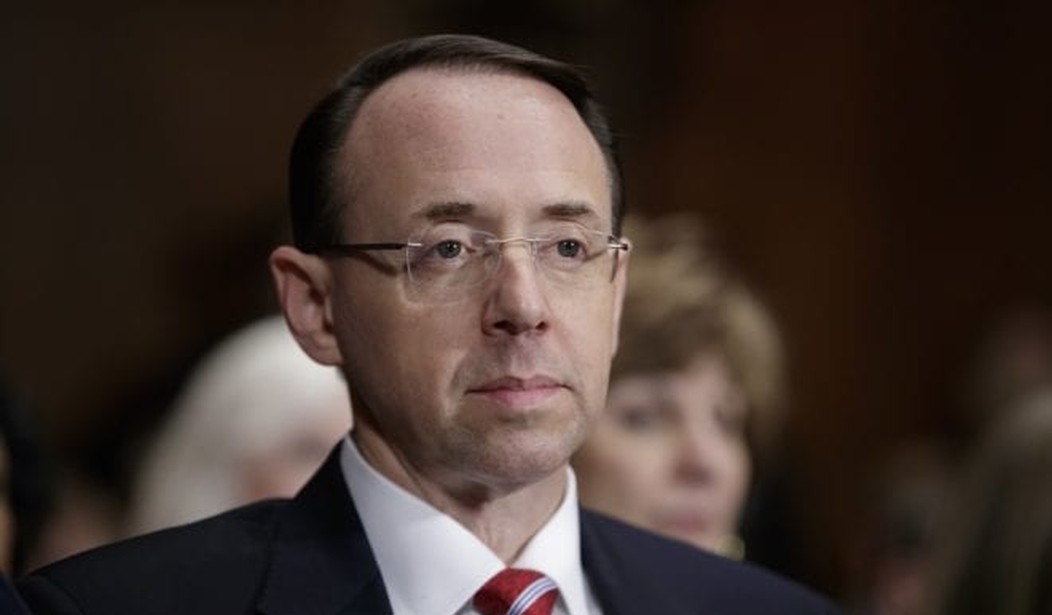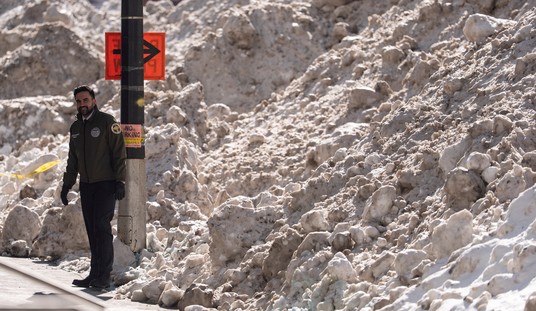
Deputy Attorney General-designate, federal prosecutor Rod Rosenstein, listens on Capitol Hill in Washington, Tuesday, March 7, 2017, during his confirmation hearing before the Senate Judiciary Committee. (AP Photo/J. Scott Applewhite)
Fresh off the FBI finally getting a chance to review the memo developed by House Intelligence Committee staff concerning potential misuse of the Trump dossier by Department of Justice and by the FBI, there was a leak of some of the contents of the document to the New York Times.
A secret, highly contentious Republican memo reveals that Deputy Attorney General Rod J. Rosenstein approved an application to extend surveillance of a former Trump campaign associate shortly after taking office last spring, according to three people familiar with it.
The renewal shows that the Justice Department under President Trump saw reason to believe that the associate, Carter Page, was acting as a Russian agent. But the reference to Mr. Rosenstein’s actions in the memo — a much-disputed document that paints the investigation into Russian election meddling as tainted from the start — indicates that Republicans may be moving to seize on his role as they seek to undermine the inquiry.
The memo’s primary contention is that F.B.I. and Justice Department officials failed to adequately explain to an intelligence court judge in initially seeking a warrant for surveillance of Mr. Page that they were relying in part on research by an investigator, Christopher Steele, that had been financed by the Democratic National Committee and Hillary Clinton’s presidential campaign.
As Trey Gowdy pointed out to Chris Wallace yesterday, using bogus information to obtain a court’s approval to carry out electronic surveillance of a US citizen is a non-trivial matter:
GOWDY: Well, for me to answer the question is confirmation that there is one.
I will — let me ask you this, Chris. If they relied on it half, is that significant enough for the American people to know? If they’re relied on it at all, do you want to know that? If you’re the judge, do you want to know if a third of what you’re providing to the court was paid for by a political opponent?
So whether they — whether it was relied upon 80 percent or 20 percent, do you want to know that the Democratic National Committee paid for material that was never vetted, that was included in the court proceeding? Do you want to know whether or not the primary source in these court proceedings had a bias against one candidate? Do you want to know whether or not he said he’d do anything to keep that candidate from becoming elected president?
Focusing on Rosenstein is an interesting direction to take with the story. Because it is James Comey, and more particularly Andrew McCabe and FBI counterintelligence chief Bill Priestap, who would have presented the evidence to Rosenstein. Rosenstein would have had no way of verifying the evidence presented to the FISA court beyond the verification the FBI gave him. Plus, Rosenstein was very new on the job and the last thing he would want was to challenge the FBI on an area of their expertise was the “new guy.”
A handful of senior Justice Department officials can approve an application to the secret surveillance court, but in practice that responsibility often falls to the deputy attorney general. No information has publicly emerged that the Justice Department or the F.B.I. did anything improper while seeking the surveillance warrant involving Mr. Page.
Actually, that isn’t true. As Gowdy said, if the degree to which the Trump dossier had not been verified as truthful and if the fact that it was an oppo research document paid for by the Clinton campaign were not disclosed to the judge, that would be improper.
The unanswered question is to what extent there was any new material on Carter Page to warrant surveillance or whether this was part of the “insurance policy” that Peter Strzok talked about. The Trump dossier had already been used around September to get a FISA warrant on Page. Did the FBI simply recycle the old affidavit to get it extended? If so, they knew that substantial portions of the Trump dossier were utter balderdash. And why did they do that? To be able to leak that there was an ongoing FISA order against a “former Trump insider” or whatever to keep the Russia-collusion pot boiling? Because it seems pretty obvious that Carter Page had no access to classified information and the Russians had dismissed him as an idiot.
I think this is just a bit of deflection to make Rosenstein the issue and not the FBI.
Having said that, I think the sooner Rosenstein is fired the better off the administration will be. He seems to be weak. He seems to be totally in thrall to the institutional cliques of Justice and the FBI. His judgment in choosing Comey’s mentor, Robert Mueller as special counsel when Comey’s firing was going to be an issue is very questionable that leave you trying to choose between knave or poltroon. Rosenstein’s involvement in the Uranium One affair is also a huge question mark.
It is difficult to see Rosenstein being able to survive this if this story is correct.














Join the conversation as a VIP Member